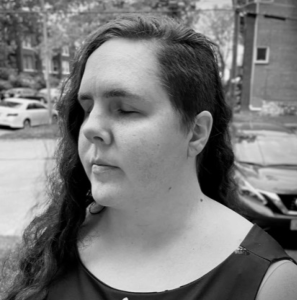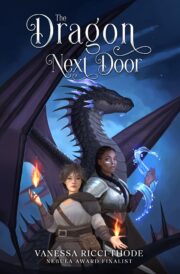Tired Disability Tropes In SFF: Do Better
By Anessa Kemna
Science fiction and fantasy should be the perfect places for disability representation. Writers make the rules in their worlds. But it’s difficult to find disabled characters and even harder to find quality representation in the SFF genres. It’s difficult in mainstream fiction too, but a genre built on imagination should have higher standards. Instead, most authors fall back on a handful of tropes that are at best old and tired, and at worst, actively harm the disability community.
It doesn’t have to be like this. We can create flying tea parties and underwater kingdoms. Surely finding new ways to live a life with a disability isn’t out of the genres’ reach. In this article, I share some of the most tired and disappointing disability tropes that crop up in SFF and some approaches to dodging them.
You’re Disabled, but Not Really
Disability erasure is one of the most pervasive disability errors in the SFF genres. Its most common form is what I like to call the Daredevil Effect. A character has a disability, but their senses or their technology are so enhanced/useful that their disability doesn’t functionally exist. If a blind character can hear so well that they don’t need a cane or a guide, or technology surpasses their blind eyes and lets them see perfectly well, that’s not actually representation.
An accommodation doesn’t negate a disability; we all hope for increased adaptations and support for disabled people. But often, the adaptations that are possible in SFF are so far from people’s real lived experiences that they can be alienating rather than representative. Being aspirational is great, but if you use the adaptation to avoid dealing with the ramifications of a character’s disability, that’s not actually representation. Your readers will not see themselves in that character. They don’t share any of their struggles or experiences. You’re still going to leave many of them feeling invisible.
It’s understandable to want to use the limitless creativity of SFF to help solve disability-related challenges. But you have to think through all the barriers. If a device helps someone see, do they get discriminated against for wearing it? Are there physical challenges to wearing it? If someone’s hearing is so good, they can hear sidewalks, are they constantly in sensory overload? The magical or technological solution is fine if it has ramifications that make sense in your world.
Poof! No More Disability!
Another disability erasure trope is the magical cure. This one seems great at first; you’re using magic to heal someone’s challenges. But there is a long history in the disability community of “cure or death.” Many people think that it’s better for someone to be dead than disabled. And even people who aren’t actively rooting for eugenics still think it’s more important to fight for a cure than to provide people with necessary accommodations.
Many people with disabilities don’t want a cure. Their disability is part of their identity. Writers who only introduce disability for the purpose of fixing it spread the message that, even in fiction, disability is so undesirable, it can only exist if it’s going to be cured. So many people have to fight against this narrative in real life; they don’t want to fight it in their fiction too.
Let disabilities exist. Let people come up with cool accommodations. Let them be okay (or not okay) with their disability and figure out how to deal with it. People learn to work with their disabilities; it’s the world around them that won’t. Think of how your world might support your disabled characters instead of thinking their only goal is to be fixed.
My Disability Is That My Disability Replaced My Personality
There are two kinds of disabled characters in most SFF: disabled and evil, or disabled and angelic. Better keyboards than mine have talked about how problematic it is to consistently associate disability with evil. But the flip side is just as annoying. Disabled characters show up to be inspiring/positive/emotionally strong so the protagonist can be shamed into a better outlook on life by their relentless bluebird joy. Or they’re so pure that when you kill them off as a plot device, it inspires your protagonist to win the day. You’re trying to glorify disability, but you just turned it into a substitute for characterization.
Make your characters people first. A disability isn’t a stand-in for a personality. What’s their favorite food? Are they a huge jerk if they miss lunch? Are they a good person but they sometimes manipulate their friends? All fine! Your disabled readers want to see personality. We’re people, with all the positives and negatives that implies. Please don’t take that away from us!
These are good starting steps towards better disability representation. As a disabled writer and reader of SFF, I want to see disability become part of the expected scenery in genre fiction. Do your research, talk to people with disabilities, and keep trying to do better. I promise you’ll have more fun writing it that way. And we’ll have a hell of a lot more fun reading it.
Anessa Kemna is a freelance writer who lives in St. Louis, Missouri with her housemate and cat. She has a Masters and 7 years-worth of a Ph.D in English literature, and is currently working on getting another Masters in mental health counseling. She writes mainly about mental health and disability advocacy, and believes in accessibility, authenticity, and rolling lots of dice. You can find her personal blog at Addapting In The Dark, and her freelance writing site at Kemna Content.



